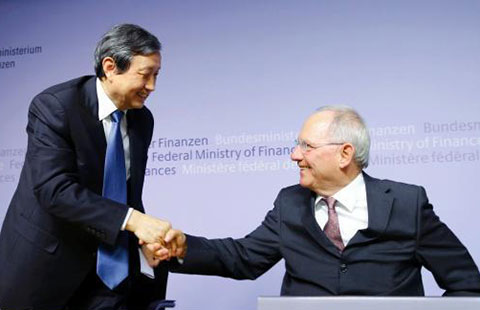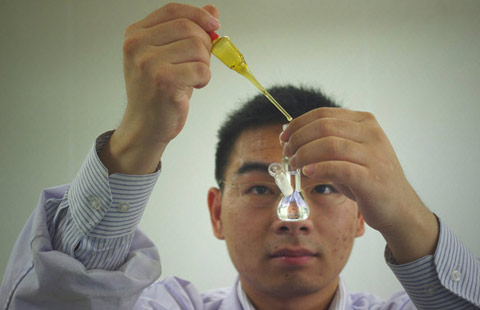Slower growth target, tougher environmental protection benefit China, world
(Xinhua) Updated: 2015-03-15 11:05BEIJING - The slower growth target and the increasing emphasis on environmental protection that feature in China's annual "two sessions" show that Chinese policy-makers have adopted a more mature view on development, which will eventually benefit the world.
For the past 12 days, the world has kept a close watch on China's annual sessions of the National People's Congress and the National Committee of the Chinese People's Political Consultative Conference.
Among many significant decisions, the around 7 percent growth target for 2015 and the toughening of environmental rules should be considered as particularly good news for China and the world as well.
The lower growth expectation set by the Chinese government is in accordance with "the new normal," showing that China is transforming into a more advanced economy with reforms taking place in different sectors.
Seeing the limitations of the former development model, which relied heavily on fixed asset investment and exports, China now aspires to steer its economy to a more sustainable track, valuing the quality over the quantity of the economic growth.
Needless to say, a healthy Chinese economy, which stood at over $10 trillion in 2014, is conducive to global economic development, and countries delivering consumer goods and services to China will be benefited.
In addition, the highlighting of environmental protection in the annual political event is a move that further proves China is seeking a better and sustainable path for development.
Over the past three decades, prioritizing economic development over environmental protection was a common practice among Chinese central and local governments.
But now China has decided to forsake the unbalanced pursuit of economic growth, as policy-makers highlighted environmental protection as one of the top priorities for China in 2015.
A new environmental law launched in January has toughened penalties over pollution and made clear that many public-interest groups have the right to sue liable parties.
The lower growth target and new accentuation of environmental protection will create a virtuous cycle, as less fixed asset investment will lead to less pressure on the environment and the toughening of environmental laws will force the backward industries to exit.
After abandoning the extensive way of growth, China now can focus on facilitating innovative industries that impose less pressure upon the natural resources and environment. And given China's large reserve of talent, the country's innovation will eventually boost the world's economy in a more powerful way.
Moreover, China's efforts on dealing with pollution will not only improve the country's own natural environment, but also contribute to the environmental issues across the world, including global warming, the deterioration of ocean water conditions and so on.
- Israel requests to join Asian Infrastructure Investment Bank
- Chinese stocks rebound on April 1
- China, the West in Africa: more room for cooperation than competition
- Nanjing cuts taxi franchise fees
- Air China increases flights to Milan, Paris
- JD.com raises delivery charges
- Veteran corporate strategist upbeat about China economy
- L'Oreal China sales revenue up 7.7% in 2014

















